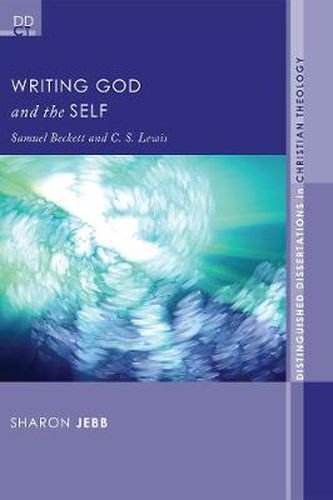Readings Newsletter
Become a Readings Member to make your shopping experience even easier.
Sign in or sign up for free!
You’re not far away from qualifying for FREE standard shipping within Australia
You’ve qualified for FREE standard shipping within Australia
The cart is loading…






This title is printed to order. This book may have been self-published. If so, we cannot guarantee the quality of the content. In the main most books will have gone through the editing process however some may not. We therefore suggest that you be aware of this before ordering this book. If in doubt check either the author or publisher’s details as we are unable to accept any returns unless they are faulty. Please contact us if you have any questions.
Contemporary literature has, for several decades and in various guises, been dominated by questions of identity and the self. It has been forgotten that, until the Enlightenment, theological reflection emphasized the close connectedness of the self with God; knowledge of God is essential to knowledge of the self; and vice-versa, correct knowledge of the self is a necessary correlate to true knowledge of God. This has been called the double knowledge. Writing God and the Self examines two literary texts and lives as representative of two antithetical positions. The first, represented by Samuel Beckett’s life and his Three Novels, is that the self is independent of God; the second, represented by C. S. Lewis and Till We Have Faces, is that God and the self are intimately connected. Beckett’s radical apophaticism about God is shown to be tied to his extreme apophaticism about the self, whereas Lewis’s sense of selfhood is demonstrated to be integrally connected to his sense of a personal and self-transcending God. Other voices–Augustine, Teresa of Avila, Charles Taylor, Rowan Williams, Mark McIntosh and Vladimir Lossky–join the chorus of theologians, psychologists, and other thinkers, past and present, that contribute to this exploration of what Christian theology has to say about the insistent problem of the self. Taken together, all these voices articulate a powerful vision of selfhood in relation to God that is desperately needed today.
$9.00 standard shipping within Australia
FREE standard shipping within Australia for orders over $100.00
Express & International shipping calculated at checkout
This title is printed to order. This book may have been self-published. If so, we cannot guarantee the quality of the content. In the main most books will have gone through the editing process however some may not. We therefore suggest that you be aware of this before ordering this book. If in doubt check either the author or publisher’s details as we are unable to accept any returns unless they are faulty. Please contact us if you have any questions.
Contemporary literature has, for several decades and in various guises, been dominated by questions of identity and the self. It has been forgotten that, until the Enlightenment, theological reflection emphasized the close connectedness of the self with God; knowledge of God is essential to knowledge of the self; and vice-versa, correct knowledge of the self is a necessary correlate to true knowledge of God. This has been called the double knowledge. Writing God and the Self examines two literary texts and lives as representative of two antithetical positions. The first, represented by Samuel Beckett’s life and his Three Novels, is that the self is independent of God; the second, represented by C. S. Lewis and Till We Have Faces, is that God and the self are intimately connected. Beckett’s radical apophaticism about God is shown to be tied to his extreme apophaticism about the self, whereas Lewis’s sense of selfhood is demonstrated to be integrally connected to his sense of a personal and self-transcending God. Other voices–Augustine, Teresa of Avila, Charles Taylor, Rowan Williams, Mark McIntosh and Vladimir Lossky–join the chorus of theologians, psychologists, and other thinkers, past and present, that contribute to this exploration of what Christian theology has to say about the insistent problem of the self. Taken together, all these voices articulate a powerful vision of selfhood in relation to God that is desperately needed today.